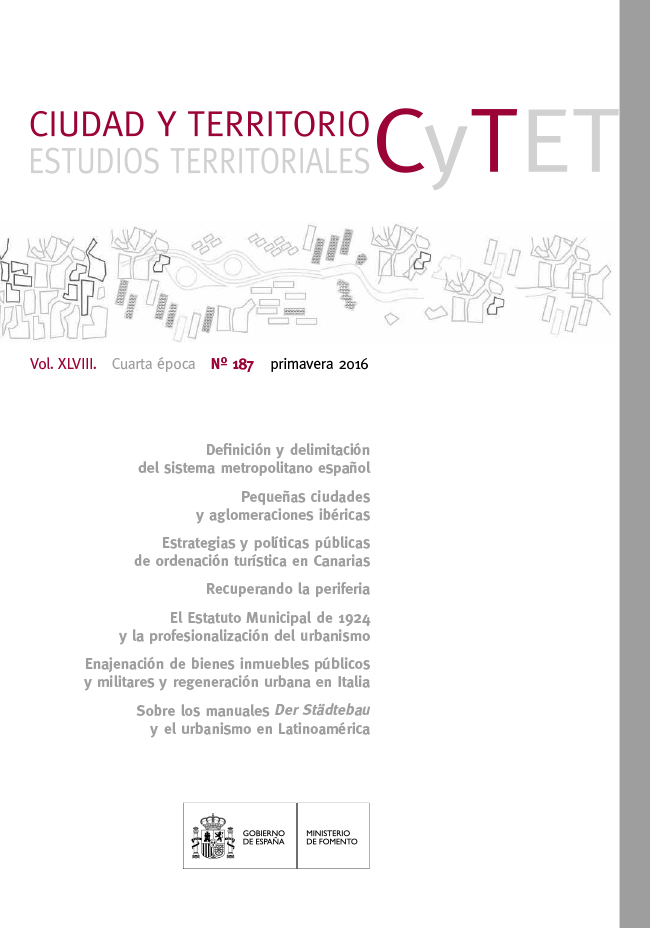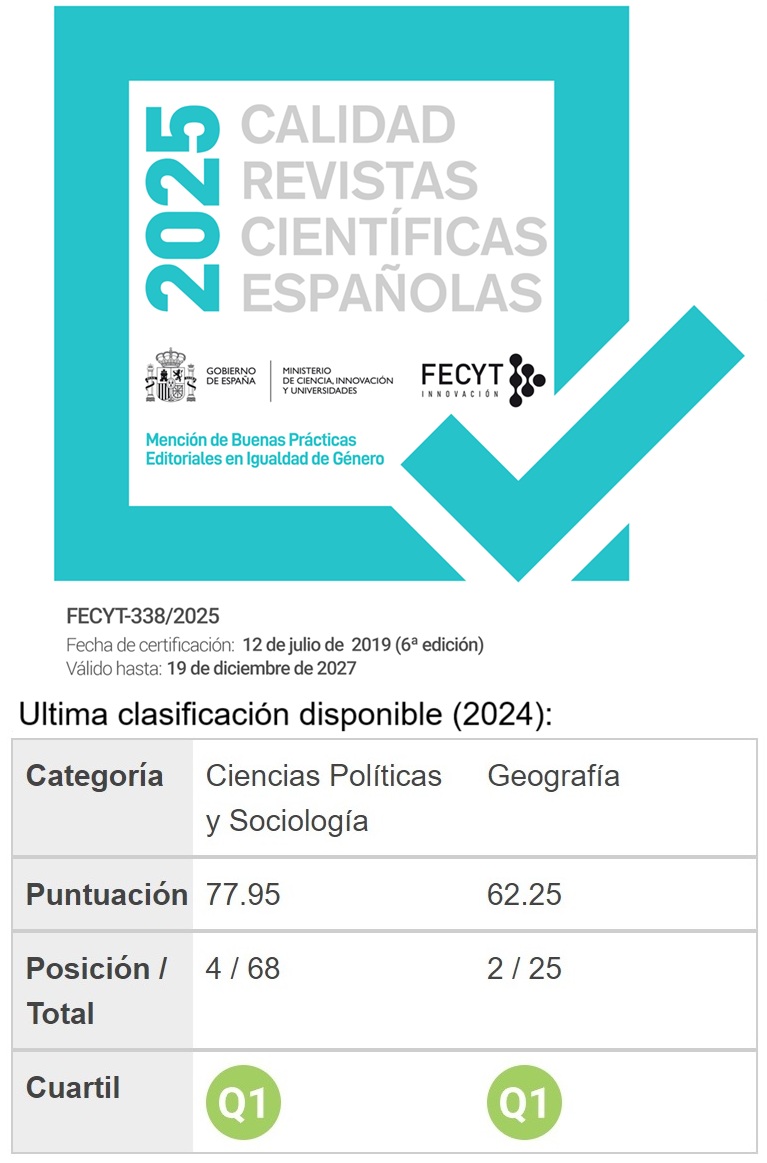Crisis, ciudad y tecnología ¿una solución inteligente?
Palabras clave:
Smart city, economía política urbana, gobernanza urbana, tecnologías de la información y la comunicaciónResumen
En un escenario de recesión económica y austeridad están emergiendo nuevas
estrategias que pretenden repensar la ciudad a través de un urbanismo mediado
tecnológicamente. Estrategias como la ciudad inteligente (Smart City) o alternativas propuestas
por los nuevos gobiernos de candidaturas de confluencia ciudadana en España
coinciden en el papel transformador que las tecnologías de la información y la comunicación
(TIC) pueden tener en implementar nuevos modelos de ciudad. Sin embargo,
detectamos la falta de estudios que exploren, de manera crítica, algunas de sus implicaciones.
Este artículo examina estas implicaciones a través del desarrollo del concepto de
Smart City en España en un contexto de austeridad. Desde una lectura crítica de este
concepto, el artículo reflexiona sobre la dicotomía tecnología-ciudad para debatir cómo
se tiene que transformar y gestionar la ciudad del siglo xxi más allá del foco en cuestiones
meramente técnicas (sensorización, apps, plataformas tecnológicas, etc.).
DESCRIPTORES: Smart City. Economía política urbana. Gobernanza urbana. Tecnologías
Descargas
Descargas
Publicado
Cómo citar
Número
Sección
Licencia
Derechos de autor 2016 Hug March, Ramón Ribera-Fumaz, Pep Vivas i Elias

Esta obra está bajo una licencia internacional Creative Commons Atribución-NoComercial-SinDerivadas 4.0.
Sin perjuicio de lo dispuesto en la legislación vigente sobre Propiedad Intelectual, y conforme a la misma, el/la los/las autor/a/es/as que publiquen en CyTET cede/n a título gratuito, de modo no exclusivo y sin límite temporal al Ministerio de Transportes, Movilidad y Agenda Urbana los derechos para difundir, reproducir, comunicar y distribuir en cualquier formato actual o futuro, en papel o electrónico, la versión original o derivada de su obra bajo licencia de Creative Commons Reconocimiento-NoComercial-SinObraDerivada 4.0 Internacional (CC BY-NC-ND 4.0), así como para incluir o ceder a terceros la inclusión de su contenido en índices, repositorios y bases de datos nacionales e internacionales, con referencia y reconocimiento en todo caso de la autoría del mismo.
Además, al realizar el envío, el/la los/las autor/a/es/as declara/n que se trata de un trabajo original en el que se reconocen las fuentes que han sido utilizadas en su estudio, comprometiéndose a respetar la evidencia científica y a no modificar los datos originales para verificar o refutar una hipótesis de partida; que el contenido esencial del mismo no ha sido publicado previamente ni se publicará en ninguna otra obra o revista mientras esté en proceso de evaluación en la revista CyTET; y que no se ha remitido simultáneamente a otra publicación.
Los autores deben firmar un Formulario de Cesión de Derechos, que les será enviado desde la Secretaría de CyTET una vez se acepte su artículo para ser publicado.
Con el objetivo de favorecer la difusión del conocimiento, CyTET se adhiere al movimiento de revistas de Open Access (OA) y entrega la totalidad de sus contenidos a diversos índices, repositorios y bases de datos nacionales e internacionales bajo este protocolo; por tanto, la remisión de un trabajo para ser publicado en la revista presupone la aceptación explícita por parte del autor/a de este método de distribución.
Se anima a las/os autoras/es a reproducir y alojar sus trabajos publicados en CyTET en repositorios institucionales, páginas web, etc. con la intención de contribuir a la mejora de la transferencia del conocimiento y de la citación de dichos trabajos.








 Enlace a CyTET en Linkedin
Enlace a CyTET en Linkedin